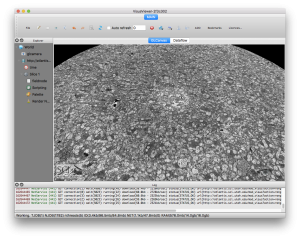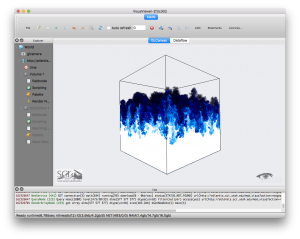Difference between revisions of "ViSUS Viewer"
(→Nodes/Filters) |
(→Nodes/Filters) |
||
| Line 31: | Line 31: | ||
The main types of ''Node'' are: | The main types of ''Node'' are: | ||
| − | |||
| − | |||
| − | |||
| − | |||
| − | |||
| − | |||
| − | |||
| − | |||
| − | |||
| − | |||
| − | |||
Revision as of 22:15, 2 August 2017
Contents
Basic Usage
Open/Add a dataset
A dataset can be either local or remote (e.g. provided by a ViSUS Server).
Local dataset
Two options are available to open a local dataset in the menu File:
- Open file... (open a single file, all the datasets in the current session will be discarded)
- Add file... (add a dataset to the current session)
Remote dataset
Two options are available to open a remote dataset in the menu File:
- Open URL... (open a remote dataset, all the datasets in the current session will be discarded)
- Add URL... (add a dataset to the current session)
Try, for example, to open the Gigapixel 2D dataset David using this URL: http://atlantis.sci.utah.edu/mod_visus?dataset=david
And zoom in as you like!
Save a scene
The current scene can be saved on disk using the File->Save scene... command. The scene will contain all the datasets and settings in the current session.
The current scene can also be saved as history that will contain also all the operation performed by the user in the scene (i.e. using File->Save history...).
Nodes/Filters
The main types of Node are:
You can add a Node using the menu Add.
Configuration and Bookmarks
Configuration (i.e. mostly performance and platform specific related) and list of bookmarks (i.e. commonly used datasets) are contained in the ViSUS configuration file.
Collection of IDX datasets
Sometimes can be useful to define a collection of IDX dataset to use for interactive visualization or analysis. MIDX is file format that simply defines a collection of IDX files.
Here are some examples:


